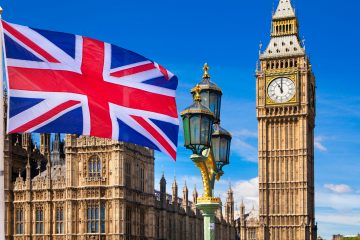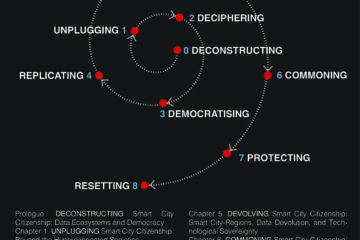
A Marshall Plan for Ukraine?
As policymakers and commentators grapple with understanding the direction of Russia’s invasion of Ukraine, they turn to the past for guidance. Are we at the beginning of a more general war –1914 or 1939? Or is the experience of how major wars end a guide? The Marshall Plan of 1948-1951 is all over the news as discussions get under way about the hoped-for recovery of Ukraine. “The war in Ukraine has caused the world, particularly the west, to look to the past for answers…. Marshall Plan history is no longer a niche,” says the Financial Times’s Gillian Tett. EU Commissioner Johannes Hahn, Prime Minister Boris Johnson, magazines like New Statesman, and think tanks like the Center for Economic and Policy …

A New Direction for US Democracy Promotion?
As a prominent global aid donor, democracy promotion has distinctively shaped U.S. foreign assistance activities. Democracy aid has been a prominent theme of U.S. foreign assistance since the Marshall Plan. More recently, between 2001 and 2015, the U.S. annually disbursed $18 billion on average in democracy and governance aid, which represents (on average) 43% of the total U.S. foreign aid budget (calculated by the author from U.S. Government data and including Department of Defence figures). Nevertheless, the relationship between institutions and aid is complex and disputed. Scholars argue that inclusive and equitable institutions underpin economic growth and catalyse foreign assistance. Yet aid may also feed back on institutions, strengthening, weakening, or consolidating them. In December 2021, President Biden reflected on …

Takeaways from the Vote of No Confidence: What it means for Boris Johnson, the Conservative Party, and Britain
On June 6, Prime Minister Boris Johnson survived a vote of no confidence from the Parliamentary Conservative Party. The vote was triggered by 15 percent of Tory Members of Parliament (MPs) writing to the chair of the 1922 Committee, which represents backbenchers. Thus far, six of the last nine leaders of the Tory Party have faced a leadership challenge of some sort while in office. Yet, while Johnson has joined the list of leaders who survived such a vote, the results of the ballot show that his leadership of the party in the long term remains precarious. How bad were the results? While the relatively low threshold for a vote means Johnson is far from the first leader to face …

Can Marine Le Pen win the French Presidency?
This piece is based on an article first published on The Loop, ECPR’s Political Science Blog. With the 1st round of the French presidential elections only a few days away, the incumbent Emmanuel Macron (La République en Marche) continues to lead the polls (opinion-way.com) with 26-27% of vote intentions, followed by Marine Le Pen (Rassemblement National) at 22-23% and with Jean-Luc Mélenchon (La France Insoumise) in third place at 16-18%. All the other candidates seem out of the race. Even those who were once seen as possible contenders, in particular Éric Zemmour (Rêconquete) and Valerie Pécresse (Les Républicains) trail at around 9-10%, with little chance of qualifying for the 2nd round. Last autumn, a repeat of the 2017 Macron-Le Pen duel …
When Attempts to Change Institutions Fail: The Case of the Affordable Care Act
The U.S. Supreme Court’s recent decision to uphold the Affordable Care Act (ACA, also known as Obamacare) is the latest in a series of failed attempts by Republicans to repeal the law. From its passage in 2010, the ACA has been responsible for reducing the uninsured population significantly through its key provisions requiring individuals to purchase health insurance, extending coverage for individuals with pre-existing conditions, and expanding Medicaid for low-income Americans¹. Republican legal challenges to the ACA started within hours of its signing. Filed by states, associations, and individuals, several cases made it to the Supreme Court, which rejected challenges to the ACA in 2012, 2015, and, most recently, June 2021. These legal defeats coincide with other failed attempts by …

Jihad in the City: Militant Islamism and Contentious Politics in Tripoli- Author’s Q&A
We interviewed Raphaël Lefèvre about his new book Jihad in the City: Militant Islamism and Contentious Politics in Tripoli, available now. OxPol: What motivated you write your book? Raphaël Lefèvre: I wanted to shed light on a little-known historical event with large contemporary echo: the creation by a militant Islamist movement of an “Islamic Emirate” on the city of Tripoli, Lebanon in 1982-1985. This movement has modern parallels with the “Islamic Caliphate” created by ISIS in parts of Iraq and Syria after 2014 and with similar attempts by Al-Qaeda to create “Islamic Emirates” on the territories it has sporadically controlled recently, from Southern Yemen and Northern Mali to Northern Syria. I am not suggesting that the 1982-1985 “Islamic Emirate” in Tripoli …
A Return to the Right for Mexico? Foucault’s Pendulum and Missed Political Opportunities
In June 2021, amidst the COVID-19 pandemic, Mexico will face what is bound to be one of the most complex mid-term elections the country has seen in the last two decades. At stake is control of 15 (out of 32) governorships, 30 state legislatures, 1,900 municipalities and a complete renewal of the Lower Chamber of Congress. The outcome will clearly be either a punishment or a reward for the leftist administration of Andrés Manuel López Obrador (AMLO) and the ballots cast this summer will undoubtedly make or break the second half of his presidency. The extent to which the COVID-shock has impacted individual political preferences in Mexico remains unclear. Looking at the most recent available data to conduct an exploratory …

Smart City Citizenship: A Techno-Political Review (of Cities and Nations)
COVID-19 has hit European citizens dramatically, not only creating a general risk-driven environment with a wide array of economic vulnerabilities but also exposing them to pervasive digital risks, such as biosurveillance, misinformation, and e-democracy algorithmic threats. Over the course of the pandemic, a debate has emerged about the appropriate techno-political response when governments use disease surveillance technologies to tackle the spread of COVID-19. Citizens have pointed out the dichotomy between state-Leviathan cybercontrol and civil liberties. Moreover, the giant technological flagship firms of surveillance capitalism, such as Google, Amazon, and Facebook, have already assumed many functions previously associated with the nation-state, from cartography to the disease surveillance of citizens. But particularly, amidst the AI-driven algorithmic disruption and surveillance capitalism, Smart City Citizenship sheds light on the way citizens …









